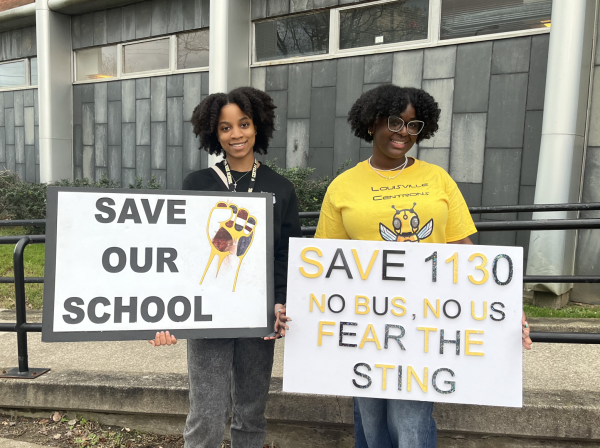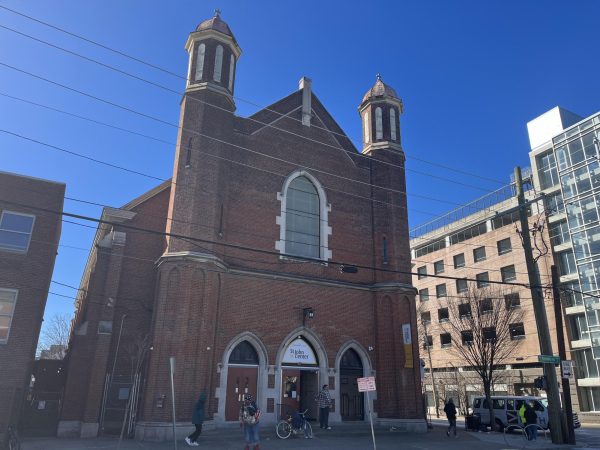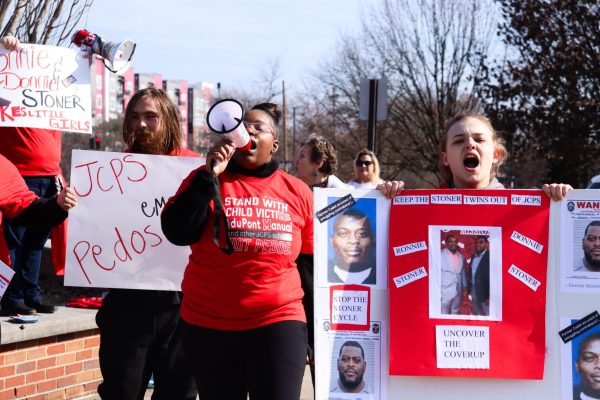Controversial Marsy’s Law will be on Kentucky midterm ballot
November 2, 2018
UPDATE:
Voters passed the amendment with a 63-37 margin, however Marsy’s Law will not be implemented into the Kentucky Constitution until the Kentucky Supreme Court approves it.
Franklin Circuit Judge Thomas Wingate ruled that the vote cannot be certified as official because the language on the ballot was very vaguely worded. Secretary of State Allison Lundergan Grimes cannot declare Marsy’s Law passed until the Kentucky Supreme Court deems the amendment valid.
ORIGINAL STORY:
Marsy’s Law will be on the ballot on Nov. 6 for all Kentucky residents to vote on, and while there hasn’t been much discussion surrounding the proposed change to the Commonwealth Constitution, the change has received both praise and criticism.
Marsy’s Law aims to provide equal “enumerated rights to victims of crime,” according to the Marsy’s Law campaign website. Currently, 15 states, including Kentucky, do not have provisions in their constitutions.
“Marsy’s Law for All seeks to amend state constitutions that don’t offer protections to crime victims and, eventually, the U.S. Constitution to give victims of crime rights equal to those already afforded to the accused and convicted,” Dr. Henry Nicholas, founder of Marsy’s Law for All said.
Marsalee “Marsy” Nicholas’ ex-boyfriend stalked and killed her in 1983, and after one week, he confronted Marsy’s mother and killed her in a grocery store. The family was unaware that the accused murderer had been released on bail, thus creating the Marsy’s Law for All campaign.
While Marsy’s Law has proven controversial, many members of the Louisville Metro Police Department have been featured on commercials in support of the proposed change.
.@LMPD Detective Amber Koenig sees firsthand how victims are often re-traumatized by the very court system meant to protect them. Marsy’s Law would help prevent this by ensuring crime have constitutional rights. Vote YES on November 6! #ML4KY18 pic.twitter.com/OjN8p4SK4H
— Marsy's Law for KY (@MarsysLaw4KY) October 29, 2018
Supporters and praise
Proponents of the proposed change argue that the government could do more to inform crime victims on updates regarding their cases. Marsy’s Law boasts several cases where criminals came back to retaliate against victims and their families, including the story of Christy Sims.
Sims accused her boyfriend at the time of “slinging acid” towards her, and also said that prosecutors never informed her that he was back out on the streets. Still, to this day, she doesn’t know how he managed to get released from prison.
8 days until Election Day! #ML4KY pic.twitter.com/GHthFfTBJa
— Marsy's Law for KY (@MarsysLaw4KY) October 29, 2018
Other victims found out that accused criminals were released through local newspapers, and if they had not read the paper that day, they wouldn’t have found out otherwise.
Voters typically vote in favor of Marsy’s Law, simply because of its simple campaign message: equal rights for crime victims. However, the change to state constitutions has struggled in states where the change must go before legislators rather than individual voters.
Opponents and criticism
Marsy’s Law received criticism from the American Civil Liberties Union (ACLU) of Georgia and Nevada along with the Iowa Coalition Against Domestic Violence and Sexual Assault, both of which are headquartered in states where Marsy’s Law campaigns occurred.
Unintended consequences from Marsy’s Law will mean more government secrecy.
Get the facts. Vote NO on Question 1 to protect the Constitution. https://t.co/qAuGrbAeQQ— ACLU of Nevada (@ACLUNV) October 29, 2018
“We believe this well-intentioned effort promotes the wrong mechanism for advancing victims’ rights. Amending the Iowa Constitution to comport with Marsy’s Law undermines the legal system and strains resources to the range of programs addressing victims’ comprehensive needs,” Laurie Schipper and Beth Barnhill, executive directors of the Iowa Coalition Against Domestic Violence said.
Many of the arguments against Marsy’s Law stem from the presumption of innocence and the accused’s rights found in many state constitutions.
Other arguments suggest that wasting resources attempting to constantly inform victims of their accused’s status would draw away from resources that ensure victims have appropriate opportunities to testify in court.
Campaign
Nicholas, founder of Broadcom Corp, a Fortune 500 company, is a billionaire who has spent millions of dollars campaigning for Marsy’s Law, most notably through television advertisements which have been criticized for their lack of detail in explaining Marsy’s Law.
Campaigning has been somewhat successful for the proposed change to state constitutions. Marsy’s Law only officially passed in California, however similar laws passed in both Ohio and Illinois. Other states including Hawaii, Montana, Nevada, South Dakota, Iowa, Oklahoma, Florida, North Carolina, Kentucky, and Georgia have all had similar campaigns to include Marsy’s Law in their constitutions.
Featured image citation: “Vote no on 9?” by Quinn Dombrowski is licensed under CC BY-SA 2.0. Use of this photo does not indicate photographer endorsement. No changes were made to the original photo. For the full license, click here.

















